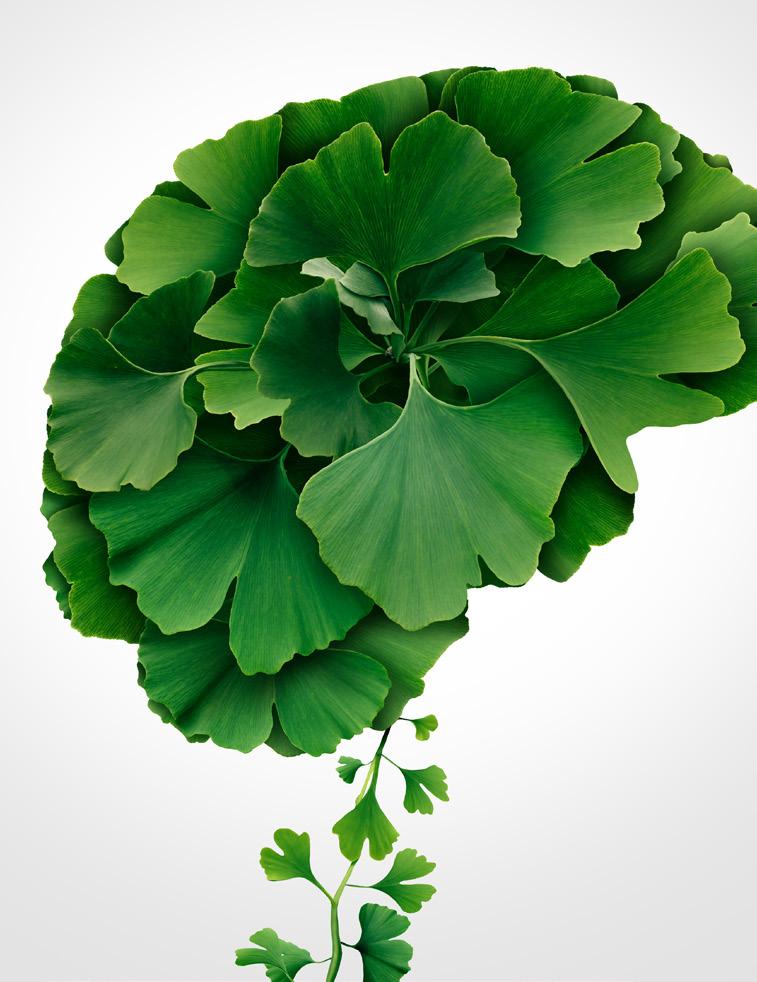
3 minute read
Growing: Good For The Mind
BY RICH HAMILTON
The art of growing plants can help improve mental health by uplifting our spirits and gently silencing our worries. Like most hobbies, gardening can take us away from harsh realities for a short while as we focus on one particular activity.
Researchers have been promoting the benefits of horticulture for years, as studies have repeatedly shown that the act of tending to plants can relieve stress and have an overall calming effect. Gardening is so good for the brain; it may even lower the risk of dementia!
Special Connection
Plants are an excellent way to step back from the stresses of work and the technology that comes with it. They provide a connection to Mother Nature that many of us so desperately crave. Whether raising a couple of house plants or a whole crop of veggies, all forms of horticulture force you to stop and focus on being present in what you are doing, even if only for a few minutes. Consider it a kind of mindfulness. Raising Plant Babies Indoor gardening provides a sense of accomplishment and pride for being able to grow something, care for it, and keep it alive! Raising plant babies can help battle feelings of inadequacy, low self-esteem, and poor motivation. The social prescribing movement is taking off around the world in which doctors are suggesting mental health patients participate in activities such as gardening rather than take medications. Raising plant babies can help battle feelings of inadequacy, low self-esteem, and poor motivation
One recent study asked a sample of people in their twenties to participate in a computer-based exercise before tending to an indoor garden. Researchers found the group experienced a considerable drop in blood pressure and other stress symptoms while focusing on the plants!
Mood-Boosting Scents
Beyond the actual act of gardening, the toxin-absorbing, air-purifying capabilities of many plants also benefit our bodies. Indoor plants can remove toxins and carbon dioxide from the air, release oxygen, and increase humidity, making the air healthier and better for our skin and sinuses. In hospitals, plants have been found to help speed up recovery by lowering blood pressure, pain, and fatigue.
Chamomile contains the antioxidant apigenin, which binds to receptors in the brain and may help reduce insomnia. Drinking it as a tea or smelling its scent has also been known to alleviate symptoms of depression and help with insomnia. Smelling jasmine and lavender can lower anxiety and stress and promote wellbeing. Iris also has a distinctive perfume that is soothing and proven to help with relaxation.
Color Therapy
The color green promotes emotional stability, and likewise, brightly colored flowers can serve as instant mood boosters! Bright red flowers, such as ruby Ranunculus, are associated with improved concentration and attention to detail, while blue stems, such as anemone or Lisianthus, can encourage creativity and free-thinking. Sprawling gardens aren’t necessary; a handful of low-maintenance houseplants in your home or work environment can make all the difference. Office workers are more productive and happy when surrounded by indoor plants, especially in the winter when symptoms of Seasonal Affective Disorders (SAD) begin to make themselves known.
Raising Plant Babies
Indoor gardening provides a sense of accomplishment and pride for being able to grow something, care for it, and keep it alive! Raising plant babies can help battle feelings of inadequacy, low self-esteem, and poor motivation. The social prescribing movement is taking off around the world in which doctors are suggesting mental health patients participate in activities such as gardening rather than take medications.
Sprawling gardens aren’t necessary; a handful of low-maintenance houseplants in your home or work environment can make all the difference. Office workers are more productive and happy when surrounded by indoor plants, especially in the winter when symptoms of Seasonal Affective Disorders (SAD) begin to make themselves known.
As research continues, we will inevitably learn more about the importance and benefits of growing plants indoors. For now, it is clear our bodies and minds are most at peace when surrounded by nature. Any plant that brings you joy and calms your soul is worth growing, so pick the varieties that appeal to you most. They may help you more than you think.











